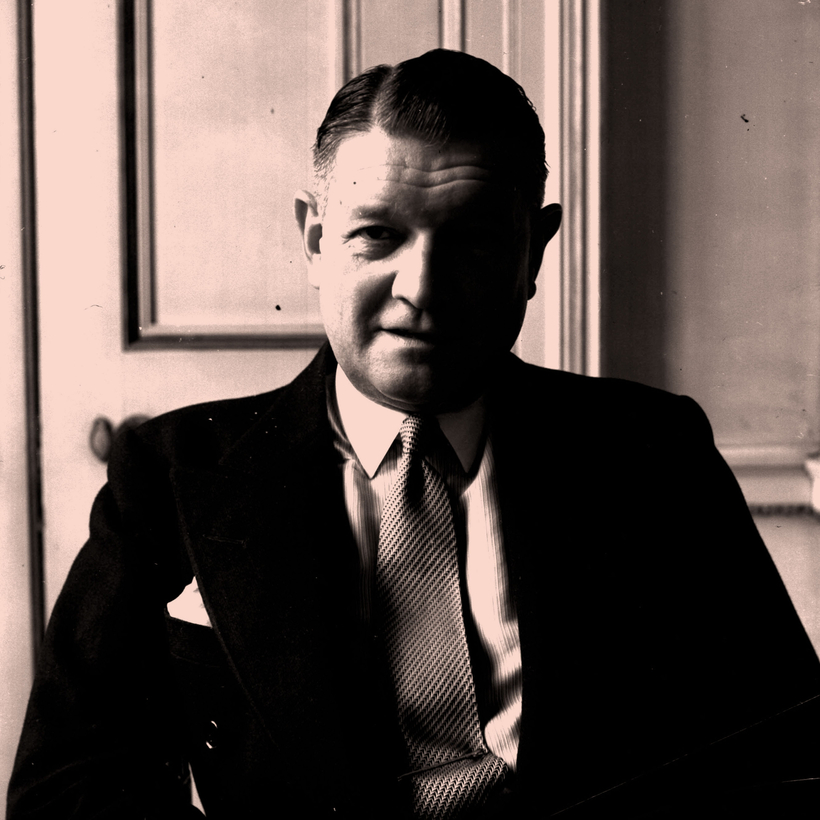That Winston Churchill was widely distrusted within his own party and by the British ruling elite when he became prime minister, in May 1940, is well documented. “Seldom can a Prime Minister have taken office with the Establishment … so dubious of the choice and so prepared to find its doubts justified,” wrote the prime minister’s former private secretary, Jock Colville, adding that “within a fortnight all was changed.”
The second volume of the unexpurgated diaries of Henry “Chips” Channon, brilliantly edited by Simon Heffer, reveals how far this was from being the case.
On July 26, 1940—one week into the Battle of Britain—the right-wing Conservative M.P. Michael Beaumont tells Channon that he considers Churchill “a greater menace than Hitler.” Rab Butler and Harold Balfour, devotees of Neville Chamberlain and his policy of appeasement, continued to despise the prime minister throughout the Second World War, despite serving in his government. And the society portrait artist James Gunn declared, in December 1941, that “Winston Churchill should be shot.”
As for the gilded diarist himself, Channon recognizes Churchill’s qualities—most notably his oratory—but fails to shake a deep-seated animus for that “angry bullfrog”: “He is bitter, unscrupulous, rancunier [spiteful], and I wonder how much more the Conservative Party, the Commons and the country will put up with. I hate him bitterly and think he will ruin England and the Empire for personal aggrandisement.”
Turning Tides
In Volume One of his diaries, published in March, Channon was on the ascent. A rich American with what would now be called a talent for “networking,” he had been adopted by London society, married the heiress Honor Guinness, become a member of Parliament, befriended the Prince of Wales, and been appointed parliamentary private secretary to the undersecretary of state for foreign affairs.
In October 1938—where Volume Two begins—he is still riding high. Chamberlain has just returned from Munich, having agreed to the annexation of the Czechoslovak Sudetenland by the German Reich, and Channon’s admiration for the prime minister knows no bounds.
“I woke dreaming of our amazing little god, the PM, so courageous, humorous, sound and amiable. Not even England has ever produced such a man,” he records on March 1, 1939. A few weeks later, he even hints that he is even sexually attracted to the 70-year-old premier: “I love the PM with mixed feelings of hero-worship and admiration … and more.”
But the tide had already turned. On March 15, 1939, Hitler tore up the Munich Agreement and invaded the rump of Czechoslovakia. Appeasement had failed, and Chamberlain was forced to move toward a policy of deterrence and belated re-armament.
Not that the most ardent appeasers gave up hope of reaching an accord with Hitler’s Germany. In a previously unpublished entry, dated April 18, 1939, Channon records a meeting with the Duke of Buccleuch in which the duke imparts his interpretation of two conversations he had just had with Hitler’s foreign minister, Joachim von Ribbentrop, in Berlin. “He was convinced [Ribbentrop] did not want war,” Channon notes, “nor did other German officials.”
Within a few hours, Buccleuch, who rivaled Channon in political naïveté, had repeated this story to the foreign secretary, Lord Halifax, and within a few more had been received by the prime minister.
The effect, according to Channon—who, it must be said, had a facile habit of crediting almost all political events to personalities and personal intervention—was significant. The policy of pursuing an alliance with the Soviet Union was tempered, and appeasement was given another chance, with Britain’s ambassador to Berlin (recalled after the occupation of Prague) returning to Germany.
The fall of Chamberlain and the ascension of Churchill, in May 1940, sent Channon’s political fortunes into reverse. Although he remained with Rab Butler at the foreign office until July 1941 (when Butler was made president of the board of education), he knew that his days in government were numbered.
Marriage (and Divorce) Story
His professional setback coincided with a personal one. On October 26, 1940, Channon’s wife—who was 12 years his junior and had been enjoying an increasing number of “skiing” holidays, even in July—informed him that she wanted a divorce. To the reader of Volume One as well as the first 431 pages of the current volume, this does not come as a surprise.
“Never interested or concerned with other people,” Honor Channon appears cold, selfish, and somewhat imbalanced in her husband’s naturally partisan account. Having withdrawn “conjugal rights” in April of 1938—five years into their marriage—Honor had an affair with a Hungarian ski instructor before eventually leaving Channon for an Essex horse dealer.
Channon believed he had been shabbily treated. “I try my very utmost to do everything not only to soothe her, but to make her happier,” he wrote on October 3, 1938. Well, up to a point.
As was made abundantly clear in Volume One, Channon’s predominant sexual orientation was in the direction of men. Passionate affairs, in the 1920s, with Viscount Gage and Prince Paul of Yugoslavia were superseded by a string of nocturnal trysts with Conservative M.P.’s during the following decade. (The code for “sex” in the diaries—necessary since homosexuality remained illegal in Britain until 1967—is a “long talk” late at night.)
In this volume, Channon has an affair with Prince Paul of Greece (“old, wrinkled and obese,” but royal—the supreme quality in Channon’s book), as well as his brother-in-law the Conservative M.P. Alan Lennox-Boyd.
More significantly, he begins his relationship with Peter “Petticoats” Coats, “a well-meaning Pierrot of charm and Aryan good looks” and his long-term companion and grand amour.
“Malice,” declares Channon, “is the currency in all high civilised, aristocratic circles.” He certainly provides his fair share of it in this volume.
Duff Cooper, who earned Channon’s enmity by resigning over the Munich Agreement, is described as “a little strutting cunt-struck bantam cock.” Viscount Cranborne, who resigned over the appeasement of Mussolini, in February of 1938, is “a hideous, hysterical, humorous eunuch, ill-formed, unfortunately not tubercular, ill-dressed, unattractive and spoilt.” And Lady Maureen Stanley, wife of the Cabinet minister, Oliver Stanley, and who was dying of “galloping consumption,” is described as “a dissolute unfaithful wife, a notoriously neglectful mother, a vampire, nymphomaniac, a drunkard and even a degrading influence.”
There are, it should be said, many instances of kindness and loyalty to friends (as well as fickleness) in the diaries, and Channon was an unfailingly generous host and loving father.
Indeed, although he comes across as superficial (“I really only like royalties and Peter [Coats]”), hypocritical (“He was common, clever, and a climber”), infuriating (“Why shouldn’t Italy take Albania, a bandit-infested little country, anyway?”), and, occasionally, repellent (“Jewry the world over triumphs,” he writes following Britain’s declaration of war on Germany), none of this detracts from the value of the diaries, which are well written, revealing, witty, highly observant, and outrageously entertaining.
Henry “Chips” Channon: The Diaries, 1938–43 is out now in the U.K.
Tim Bouverie is a historian and the author of Appeasement: Chamberlain, Hitler, Churchill, and the Road to War. His new book, Perfect Pitch: 100 Pieces of Classical Music to Bring Joy, Tears, Solace, Empathy, Inspiration (& Everything in Between), will be published in the U.K. next month


